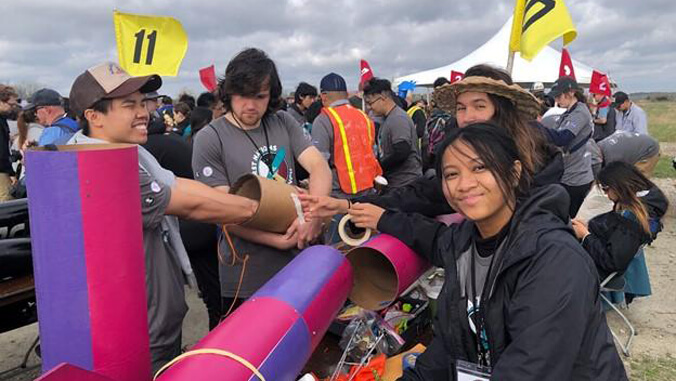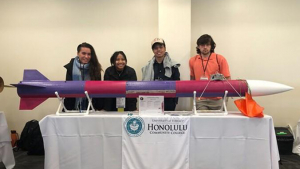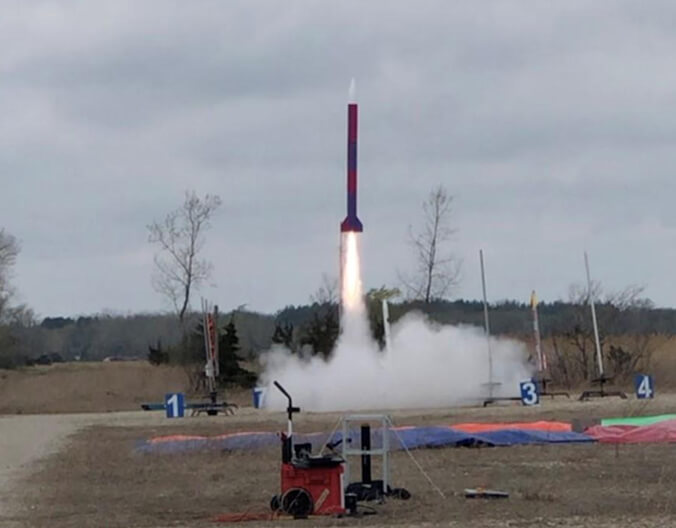
A team of Honolulu Community College students won two rocketry awards—for best presentation and safety—at the 2024 First Nations Launch held in Wisconsin in April.
Students Angello Portillo, Andrew Martin, DʻElle Martin and Melody Ramos competed in the Moon Challenge, where the objective was to build a rocket that could reach at least 2,000 feet and subsequently deploy a drogue chute (a parachute designed for deployment from a rapidly moving object), payload and main chute upon descent. The payload was required to land safely within a total footprint of 16 x 16 square inches. Throughout the fall and spring semesters, the team collaborated to design, build and fabricate a rocket exceeding 10 feet in length, and its payload.
“Being noticed by the judges that we performed very well on our performances and skills was very reassuring that all of our hard work was really put into effect,” said Portillo, the avionics lead, who worked on programming and configuring the controllers for the ejection charges to deploy the recovery systems and the payload. “I was very thrilled when we got to be recognized by other schools, mentors and peers. The whole experience was very educational and helped me create a network that reaches beyond Hawaiʻi.”
Designing success
Andrew Martin was in charge of designing the payload that mechanically deployed and survived the deployment and descent of 1,748 feet. He also designed a custom payload to record atmospheric data, such as air pressure and acceleration, which provided important information about the flight post recovery. Ramos worked on the payload in its initial stages with the payload’s preliminary designs and handed off the procurement and specifics for Martin to complete the fabrication process.

D’Elle Martin was the airframe design lead who built the rocket, modifying its design to fit the challenge requirements. Patoc provided support to both the electronic payload and the rocket build. Associate Professor of Physics Shidong Kan, Helen Rapozo and Jacob Hudson served as mentors.
“This was a wonderful opportunity for our students to participate in a national-level event,” Kan said. “Our students did a really great job. They learned how to successfully work together to design the payload, assemble the rocket, integrate all of the parts together and strictly follow the launch procedure and checklists.”


